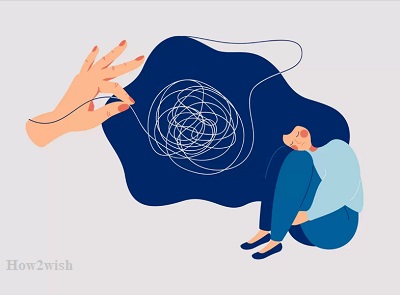The feeling of resentment is one of the most difficult to understand and painful to experience, and there is no person who would not experience it at least once. Kids and adults, friends and lovers, children and parents are offended … Let’s find out what kind of feeling it is, how it arises and how it affects health, and, most importantly, how to cope with your resentment and what to do if you offended another.

What is Resentment
Resentment is a natural reaction to unfair or difficult events and to the actions of others. It consists of various experiences, most often of pain and anger, and feelings of guilt, shame, or fear can be mixed with them.
If someone declares that he does not know how to be offended, this means one of two things: either it is not true, or the person does not have a close relationship with anyone. People are not offended by strangers; resentment appears in meaningful relationships.
I noticed that resentment arises in situations where you:
- Did not notice (did not answer the greeting, ignored the idea);
- Expelled (not invited to a party where other acquaintances were invited);
- Rejected (refused the request, did not approve the project);
- Forgot (one of the relatives did not congratulate on an important date, an old acquaintance did not recognize at a meeting);
- Did not appreciate (the service was accepted, but no gratitude or appreciation was expressed)?
What’s happening? Someone with whom you are in a relationship (romantic, family, work, friendship) did what you think you should not have done or did not do what you should have done. In the place of the gap between expectations and reality, resentment is born.

Impact of Resentment on Mental Health
Unfortunately, many of us grew up in a culture of taboos against expressing dissatisfaction, anger, sadness, and resentment. Broadcasting ideas like “they take water to the offended”, and “only fools are offended” lead to the habit of suppressing, and “swallowing” resentment instead of looking it in the face and trying to understand. Over time, accumulated grievances can destroy both relationships and health, since ignoring strong emotions can provoke psychosomatic illnesses.
How to overcome your own resentment
In any relationship, there are rules and agreements, usually unspoken – the so-called contract. It is formed as a result of mutual grinding, the experience of interaction generates expectations. For example, on every anniversary of an acquaintance, a husband gives a bouquet of flowers, and one day he forgot. It’s a shame? It’s a shame.
Resentment arises either for a real violation of the contract or when we ourselves entered something into the contract that was not there before, without agreeing to our expectations with another person.
- How to deal with your resentment?
- Admit your feelings. Instead of “I was not offended at all” – “I was offended.”
- Understand what this signal is about. About my vulnerabilities? About the state of important relationships?
- Analyze the situation: what action offended me? What exactly hurt? Are my expectations in line with our contract? Resentment may not mean that they began to treat me worse, but that I made a mistake in assessing the relationship.
- Accept responsibility. Others are responsible for their actions, but I am responsible for understanding the situation and readiness to analyze it and go for reconciliation.
- Discuss the situation. It is important to understand how the situation looks in the eyes of the one who offended – maybe there was a misunderstanding? Or were there differences of opinion, values, and understanding of our relationship?
- Amend the contract. If the offender admits that he hurt, and is ready to accept my feelings, and the desire to change the situation that is not suitable for me, rapprochement and restoration of relations on a different level is possible.
How to respond to the insult of a loved one
What if you yourself offended a loved one? How to behave in this case and how to build a dialogue so that this insult does not begin to corrode your relationship?
- Don’t immediately apologize, especially if you are still angry – they will sound insincere and there is a danger of moving from “sorry, I was wrong …” to the second wave of reproaches “… but you …”.
- Pause to calm down.
- Listen to the other and acknowledge their feelings. This does not mean giving up his position, it means agreeing that the feelings that have arisen are real for him. Let’s say you and a friend are discussing a recent conflict: “After our fight, I didn’t return your messages and calls, and you felt unwanted and abandoned. I heard how hard it was for you ”- promises not to do this again sound, you don’t consider your reaction wrong, but you recognize the reality of your friend: she felt abandoned, and it was hard for her.
- Ask for forgiveness.
- If you feel like talking and apologizing isn’t enough, suggest, “I feel guilty and I want to do something nice for you. Let me (…)?” or ask what you could do. Resentment hits the emotional connection and it should be “repaired” by it, it is better with care and joint activities, and not with gifts.
- After the apology is made, and the emotions subsided, it is important to think about how to avoid similar situations in the future and discuss them.
Strategies for Dealing with Resentment
Words and situations to which you will react with resentment, one way or another arise in life. Below are seven tips to help you deal with it.

- Acknowledge your emotions – being aware of them helps you manage them.
- Separate resentment against people or situations from the past from the real situation.
- Look at the situation through the eyes of another, and discuss what happened.
- If you feel that you are about to break loose, take a break.
- Practice meditation or other relaxation techniques to feel confident and calm.
- Someone who is confident in himself is harder to offend. Remember this, appreciate and respect yourself.
- Do not offend in return. Resentment sometimes causes a desire to take revenge, which can manifest itself in reciprocal neglect: “She did not invite me to the wedding, so I will not congratulate her”; “He didn’t thank me for helping me, and I will stop talking to him.” You may feel satisfied for a while, but such reciprocal actions will only continue to destroy the relationship.
Visit post: Negative Thoughts: How to Stop Them
As you can see, it is not resentment that is harmful, but the way we deal with it. Feelings keep us in touch with reality, so we cannot and should not try to get rid of them. It is important to be able to distinguish between your experiences because they signal something important: here I feel good, here I am safe, and here – fear, irritation, or resentment. Give the right to life to all your feelings, and learn to deal with them.
FAQs
1. How can I stop feeling angry at someone?
If you’re angry at someone, it’s important to find ways to calm down and talk about your feelings. Take deep breaths, count to ten, and try to understand why you’re angry. When you’re ready, you can talk to the person and tell them how you feel.
2. Is it okay to feel mad at someone?
Feeling mad at someone is normal. We all get angry sometimes when we think someone treated us unfairly. It’s important to find healthy ways to express our anger and try to understand the other person’s point of view too.
3. Can being angry be good in any way?
Anger can sometimes help us realize when something is not right or when we need to stand up for ourselves. But it’s important to control our anger and not let it hurt others or ourselves. We should try to find peaceful solutions instead.
4. How long does it take to stop being mad at someone?
It can take different amounts of time for each person to stop feeling mad at someone. Sometimes it may go away quickly, and other times it may take a bit longer. It’s important to be patient with ourselves and give ourselves time to heal.
5. How can I tell if being mad at someone is affecting me?
When you’re mad at someone, it can sometimes affect how you feel inside. You might feel sad, upset, or have trouble sleeping. If being mad at someone starts to make you feel bad for a long time, it might be helpful to talk to a grown-up you trust, like a teacher or a parent, who can help you feel better.
